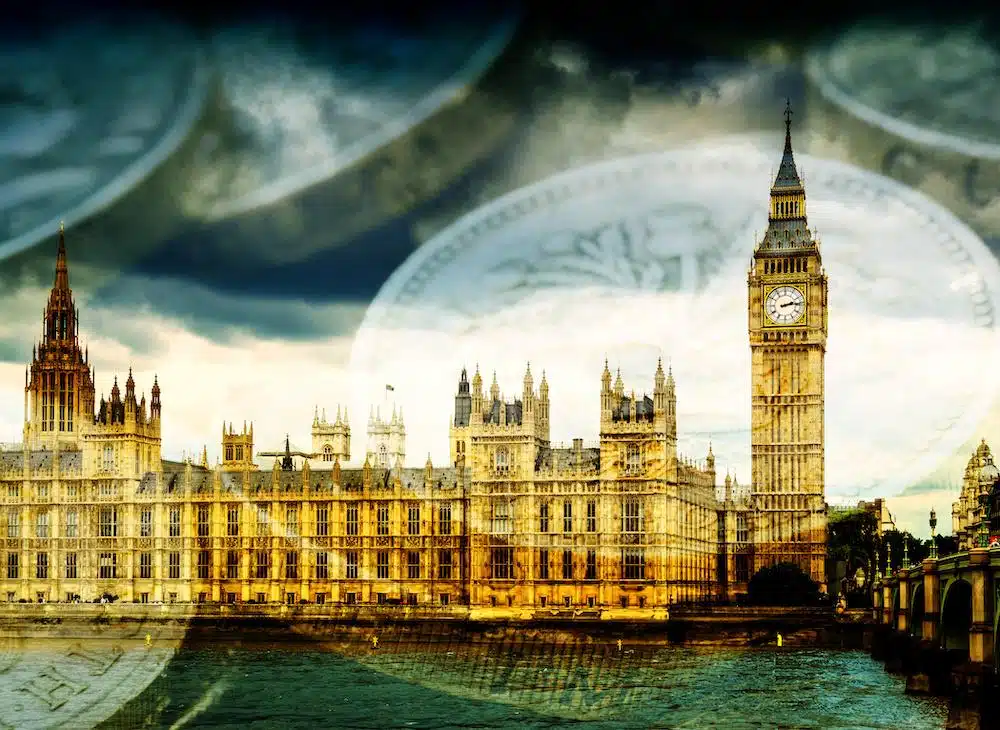It is possible that Britain’s economy experienced a downturn towards the end of last year. Investors have been pulling their money out of U.K. stocks, and concerns about excessive borrowing have resurfaced in anticipation of the March 6 budget. These concerns may persist until the expected election later this year.
However, the possibility of a shift in government that boosts confidence in the economy has sparked discussions among investors about whether U.K. markets are undervalued. A potential win for the EU-aligned opposition Labour Party could increase the value of the British pound. At the same time, the prospect of interest rate reductions should provide a boost to government bonds, also known as gilts, regardless of the election result.
“As we progress through the year and gain a better understanding of the political landscape and potential interest rate adjustments, we will come to appreciate the untapped potential in the U.K.,” expressed Neil Birrell, the chief investment officer of Premier Miton, an asset management firm headquartered in London. “This market has the potential to outperform all others this year.”
Let’s explore how investors perceive the U.K. markets:
Bonds: Representing Value or Vigilantes?
The bond markets, which have a significant impact on the cost of debt and overall economic growth, are currently cautious.
The yields on ten-year gilt, which increase when their price decreases, are approximately 4.1%. Their increase has been significant, rising by 52 basis points (bps) since the beginning of the year, while German and U.S. counterparts have also experienced a 30 bps increase.
Britain’s national debt is nearly equivalent to the entire gross domestic product. Finance Minister Jeremy Hunt has suggested the possibility of tax cuts before the upcoming election in his March budget, which has raised concerns from the International Monetary Fund.
Cesar Perez Ruiz, the chief investment officer of Pictet Wealth Management, warned that if the Conservative government engages in excessive pre-election spending or if Labour, currently leading in opinion polls, implements unsustainable post-election policies, it could trigger the return of “bond vigilantes.”
This refers to a market downturn in 2022 following a mini-budget and tax cuts implemented by the government of then-Conservative Prime Minister Liz Truss. These actions led to an increase in borrowing costs and mortgage rates, causing significant damage to Britain’s reputation for financial stability.
“We have a pessimistic outlook on gilts and the sterling,” Perez Ruiz stated.
Several prominent investors expressed optimism about gilts due to the potential for interest rate reductions as inflation decreases. The markets have completely factored in a 25 basis point reduction in interest rates for August.
According to Ed Hutchings, the rates chief at Aviva Investors, he anticipates that gilts will excel when compared to other markets. He points out that there might be hidden value in gilts that investors who are concerned about political factors may have overlooked.
Forever Lost – What Happens to Stocks?
U.K. stocks are currently not in favor, being traded at a significant discount of 35% compared to global peers. This valuation gap is one of the widest seen in many years. Prior to 2016, U.K. equities were valued at a higher price compared to other investments.
In 2023, a staggering $36 billion was withdrawn from U.K. equity funds, nearly three times the amount lost in 2016 and the highest outflow since at least 2008, as reported by fund tracker Morningstar.
Tui, the European travel operator, has decided to leave the London stock market while there is an increase in merger activity due to attractive valuations.
Perez Ruiz from Pictet mentioned that he was carefully examining the FTSE 250 index, which primarily consists of UK-based companies, in search of potential acquisition opportunities.
“The U.K. equity market is currently appealing from a valuation perspective, both in comparison to other markets and its historical performance,” noted Birrell from Premier Miton. He also mentioned that the potential for political stability could reignite investor enthusiasm.”
After assuming office in October 2022, Rishi Sunak became the prime minister, succeeding Truss, who had a tumultuous budget. Sunak’s appointment marked the third change in British leadership within less than two months. Additionally, Hunt took on the role of finance minister, becoming the fourth person to hold this position in as many months.
“Since 2016, the period for U.K. stocks has been incredibly volatile,” commented David Stevenson, a portfolio manager specializing in small and mid-cap U.K. companies at Amati Global Investors.
He mentioned that a certain level of “normalization” — whether it be in politics, interest rates, or economic growth — could enhance overall sentiment.
“The U.K. market is undervalued, a fact widely acknowledged. Investors eagerly anticipate a triggering event that will spur their participation. Once this catalyst is set in motion, the potential for a substantial rebound is immense.”


